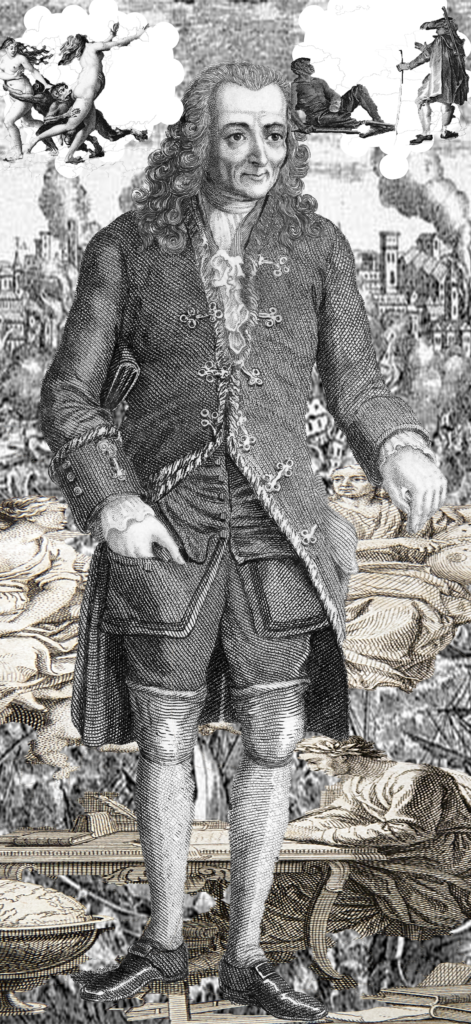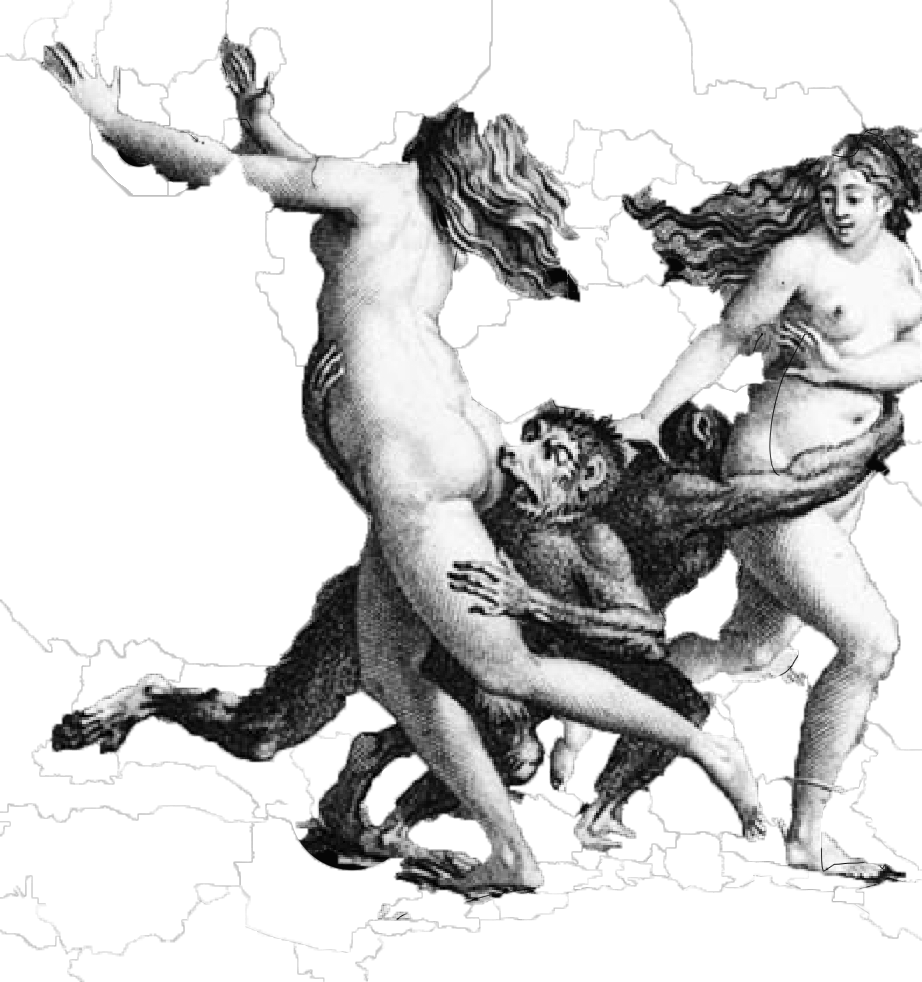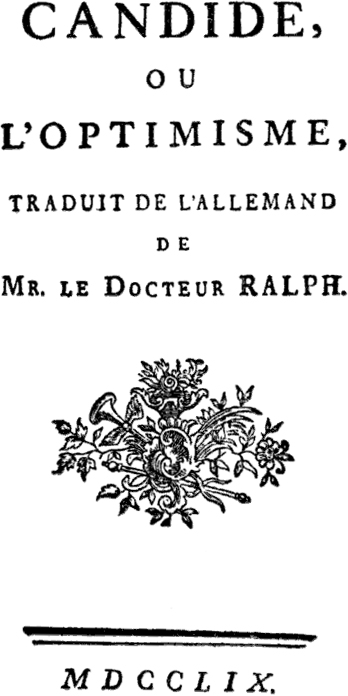Voltaire, Butt-Biting Sex Apes, A Mutilated Slave and Candide
François-Marie Arouet, better known as Voltaire, was born in November 1664 in Paris.
He was the youngest child of a lawyer/civil servant father and a mum who was low-ranking nobility. He had a brother and two sisters. His was a sort of an upper middle class family 350 years ago in Paris.
Voltaire was a French Enlightenment writer, historian, and philosopher. Voltaire is famous for his wit, intellect and cutting criticism of Christianity, especially the Roman Catholic Church. And for writing Candide.
Voltaire was an advocate of free speech, freedom of religion and separation of church and state. Any one of of those things could get you into A LOT of trouble in the late 17th and early 18th centuries.

He was imprisoned twice and temporarily exiled to England once for criticizing the French government. Voltaire wound up doing hard time for a naughty rhyme. A satirical verse accusing the Régent of incest with his daughter resulted in an 11-month, from May 1717 to April 1718, in a windowless cell with 10-foot thick walls in the Bastille.

Following his Bastille stint, François-Marie Arouet became Voltaire. The origin of the Voltaire moniker is unclear, but apparently refers to the Arouet’s family’s home area in France. As Voltaire, he kept on writing and kept on being very naughty in various ways.
One fact about Voltaire’s life is certain. Voltaire was one mean writing mo-sheen.
Voltaire wrote in almost every literary genre. He wrote plays, poems, novels and essays. He produced respected historical and scientific works. During an 82-year lifetime, he dashed off more than 20,000 letters while churning out more than 2,000 books and pamphlets. And the guy didn’t even have a typewriter.
But with Candide Voltaire scored his greatest hit writing as a satirist criticizing intolerance, religious dogma, and French institutions of his time.

Published under secretive circumstances in 1759, Candide, ou l’Optimisme (Candide, or The Optimist)
simultaneously became a great success and great scandal. Candide was immediately banned due to religious blasphemy, political sedition, and hostility to authority all disguised as naïveté.
This made Voltaire’s wild tale of Candide wildly popular.
Three hundred and sixty years later Candide is considered Voltaire’s magnum opus. Many scholars consider Candide a vital part of literature’s Western canon.
With its fantastical story line, pointed humor and insightful portrayal of the human condition, Candide has inspired numerous authors and artists to adapt it to their times. Indeed, the concept of gardening with Candide has even spawned an app to sell you gardening stuff. Within this slim novella, Voltaire’s Candide travels the known world, encountering butt-biting sex apes (spoiler alert: it doesn’t end well), the Inquisition, an earthquake and tsunami. Voltaire even manages to highlight the savagery of slavery when Candide meets with a slave mutilated in the French Caribbean sugar cane fields.
And that brings us to Gardening With Candide, or The Optimist Grows It Alone and why Candide is relevant during these new times of plague and political failure. It’s RDScally and the Obstweedles turn at perverting Voltaire’s demented yet insightful adventure yarn.
Nitty gritty details about Voltaire, Candide’s adventures and The Obstweedles’ own HGTV-meets-corona-virus era interpretation is revealed in Part Deux: “The Best Of All Possible Worlds.” It’ll even explain the butt-biting sex apes. Promise.
Meanwhile, here’s a sample track from Gardening With Candide.
Read Candide & other stuff by Voltaire
Link to 100% FREE Candide ebook download:
https://www.gutenberg.org/ebooks/19942
Link to 100% FREE ebooks of other works by Voltaire from Project Gutenberg:


